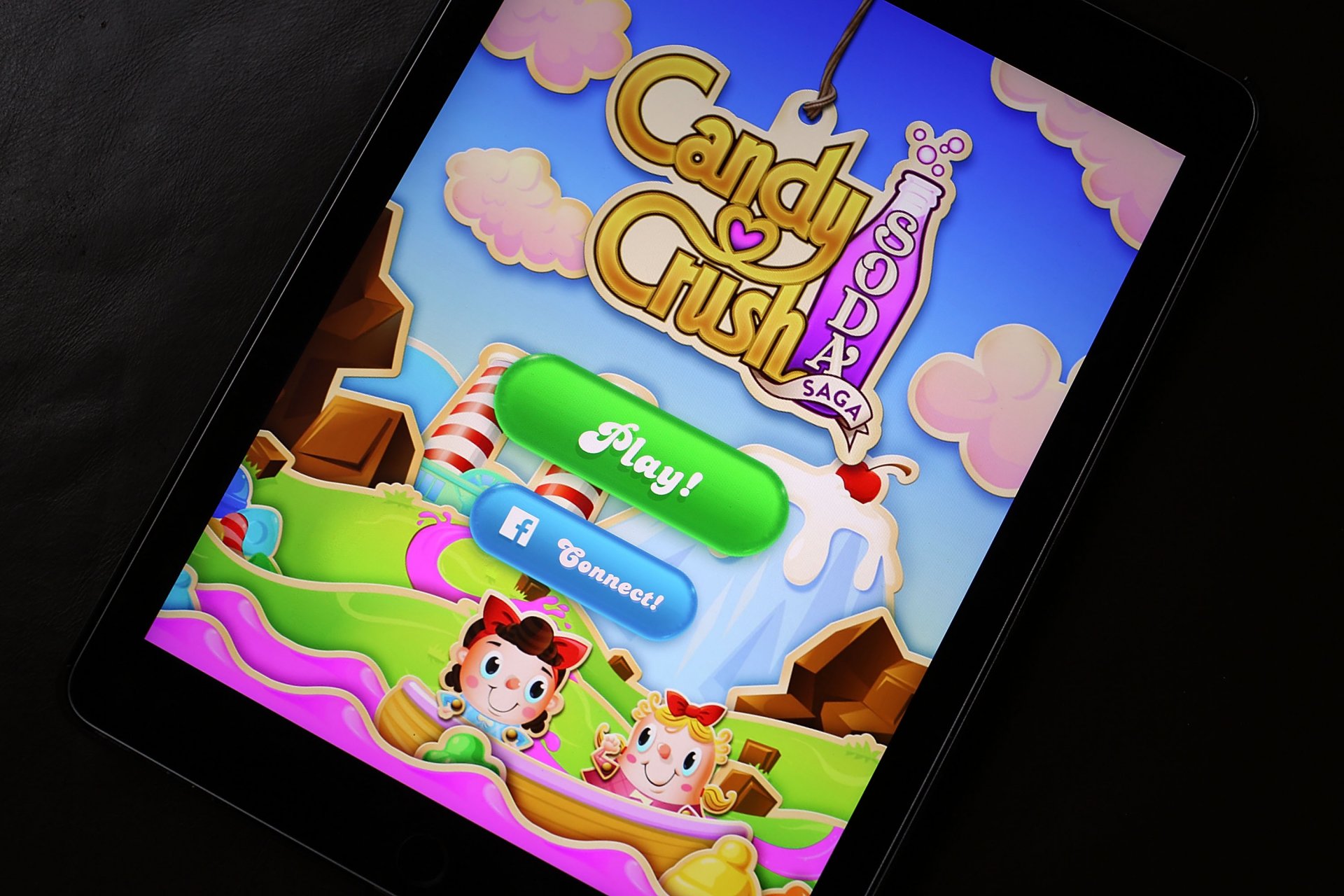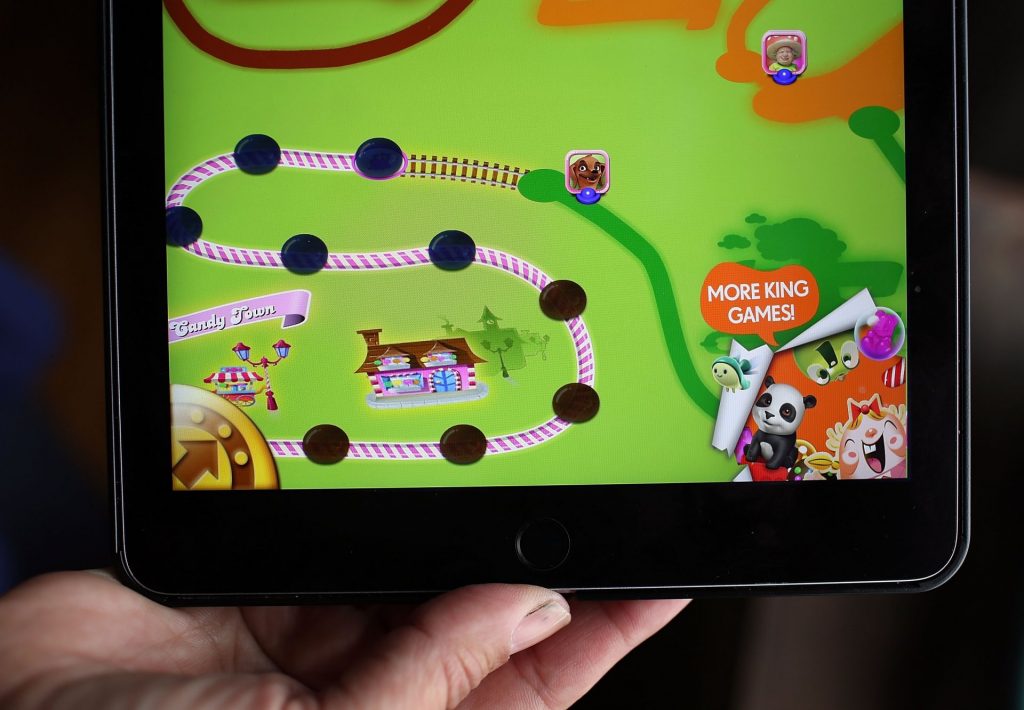
Candy Crush Saga is what happens when a fun videogame meets the harder edges of capitalism: unfortunately, it’s a model that works.
The evolution of videogames as an artform has happened in relatively quick time. Appreciating home computer games (as they were once called) sprung up in earnest in the very early 1980s, they’ve become big blockbuster business in particular over the last 20 years, and there’ve been some staggering releases in that time. Ambitious works, that take longer to make that even the most intricate movie, and oftentimes turn out a lot more expensive too.
Across every form of art, from literature to theatre, painting to the moving image, there’s the constant push and pull between the commercial and the artistic. Into that melting pot you can throw snobbery, witty jibes on social media (if you dare to like something that said social media platform has deemed unpalatable), and the strange paradox of there never being so much choice at people’s fingertips, yet there never being less will to explore.
Obviously, I’m guilty of all of this. But still: let me be the latest to conclude that Candy Crush Saga is a perfectly crafted academic dissertation as to just what’s wrong with modern videogaming.

I first played the game, one of the most successful mobile games of all time, many years ago (it originated on Facebook, before bleeding out onto any other screen or platform it could find). Then, it was a fairly straightforward get-three-things-in-a-row exercise, with interesting variations and gradually more and more taxing levels. But what stopped me then was the occasional level that just didn’t fit.
I’m a fundamental believer that at heart, a videogame should be fair. That if it presents you with a level, it should be doable. I don’t mind it being really hard, but it has to be achievable. Prove me wrong, but the random element involved in generating Candy Crush Saga pieces for a given level means that it fails that test.
What’s more, it fails it for a reason. The developers behind the game, King, want to sell you stuff. They want to sell you add-ons to get you past the really difficult levels. Some fancy sweet that you can throw onto a screen of other candies, and we’ll sell you them for just a pound or two. Don’t want to buy one? No matter. We’ll eventually relent and give you a fair crack at the level. But if you’re a tight arse with your credit card, you ain’t getting through the game in a hurry.
The business model – free to play, and then we’ll sell you things as you go – is of course now commonplace. It’s lucrative too. The game on a bad month was soon clearing nine figures of income, and publisher King was sold to Activision for $5.9bn – more than Disney paid for Marvel – back in 2015.
It was not a move to the game’s benefit, even if it was one to the benefit of Activision’s bank balance.

Coming back to Candy Crush Saga over the last few weeks – by distance the game I see being played the most on public transport – and even from a few years ago, much has changed.
Not the endless cycle of levels, which are golden for a long bus or train journey (back when it launched on iOS platforms in 2012, there were just 125!). But instead, just how much of a back seat the game itself now seems to take. Sure, the early stages lure you in with a simple puzzle game, but then it all starts a bit of a fruit machine as the difficulty ramps in an erratic way.
The scaling of Candy Crush Saga isn’t skillful in the traditional way of ramping up a game. Instead, levels now fall into a rhythm of Easy Level, Easy Level, Easy Level, Easy Level, Level So Brutally Hard You’d Need An Act Of God To Solve Without Help On Your First Go, Easy Level. Rinse and repeat.
But this is even more than ever by design, because Candy Crush Saga is now less about the relaxing game of mixing various shaped sweets, and instead its onus is on trying to sell sell sell. There’s a hard level coming up, it tells you: have a discount on a booster! You’ve completed a run of levels: how about a limited time deal on some more way to cheat? More lives: no problem! Just pop over your credit card number and we’ll get you your hit!
Moreover, there’s no actual way to buy the complete Candy Crush Saga outright, and I suspect once upon a time I’d have done so if there was. Instead though, there’s a drip drip drip sales operation going on, with a game occasionally getting in the way. Oftentimes, you now find yourself skipping through four, five, six screens, just to get to the next level. These screens invite you to join a race, spend money, register a count and – crucially – not match candies.
In the defence of King and Activision, you don’t have to spend anything. It’s still free to play if you don’t, and you can earn gold bars as you go along to offset the currency demands as the game progresses. But if you don’t hand over any cash, you can expect to be all but followed down the street with a tin rattling under your nose. And if you do buy something? Then it’s got you, and it becomes like a mini-Facebook, shilling you shit all over the fruity shop.
There’s no option to pay in anything other than micro-transactions either, and what starts as a fun, relaxing and admittedly hugely polished puzzle game ultimately – and I accept there may be a small exaggeration here – becomes the first steps on Dante’s nine circles of hell. Who knew it’d be an iPhone app that got us there?
Elsewhere, games that don’t have the marketing prowess to get noticed are coming and going, doing far more interesting things with puzzle solving than Candy Crush Saga now offers. With Candy Crush though, there’s an apparent intent to bury the perfectly entertaining game at the heart of all of this with money grabbing. And it works. Because it works, imitators chase after the bandwagon. And gamers, I’d suggest, are poorer – in more than one sense – as a result.
